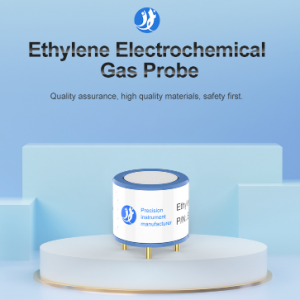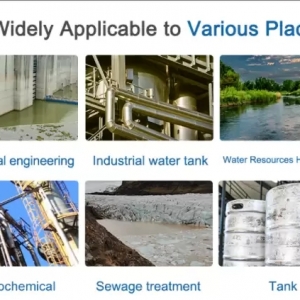Nurturing the Foundation of Plant Health
In the realm of gardening, the soil serves as the foundation upon which thriving plants flourish. Just as a human's well-being depends on a balanced diet, plants require a specific array of nutrients to achieve their full potential. Unfortunately, determining the nutrient content of soil can be a complex task, often leaving gardeners at a disadvantage when it comes to optimizing fertilization and ensuring optimal plant growth. This is where soil nutrient detectors emerge as invaluable tools, providing precise insights into soil composition and empowering gardeners to make informed decisions that enhance plant health and yield.
The Importance of Soil Nutrient Balance
The nutrient composition of soil plays a pivotal role in determining the health and productivity of plants. Essential nutrients, such as nitrogen (N), phosphorus (P), and potassium (K), collectively known as NPK, are indispensable for plant growth and development. Nitrogen promotes vigorous foliage growth, phosphorus aids in root development and flowering, and potassium strengthens the plant's overall structure and resistance to stress.
The Pitfalls of Imbalanced Fertilization
Overfertilization and underfertilization are common mistakes that can significantly impact plant growth and productivity. Overfertilization can lead to nutrient runoff, environmental pollution, and potential harm to plants due to nutrient toxicity. Conversely, underfertilization can result in stunted growth, reduced yields, and reduced resistance to pests and diseases.
Soil Nutrient Detectors: Decoding the Language of Soil
Soil nutrient detectors provide gardeners with accurate and reliable data on the nutrient levels of their soil, enabling them to tailor their fertilization practices to specific soil conditions. These innovative devices employ various techniques, including optical sensors, electrical conductivity measurement, and ion exchange chromatography, to assess the presence and concentration of various nutrients.
Benefits of Utilizing Soil Nutrient Detectors
The incorporation of soil nutrient detectors into gardening practices offers a multitude of benefits, including:
-
Optimized Fertilization: Accurately identifying nutrient deficiencies and imbalances allows for targeted fertilization, ensuring that plants receive the essential nutrients they require without over- or under-fertilization.
-
Enhanced Plant Health: Properly balanced nutrient levels promote healthy plant growth, leading to stronger plants, increased resistance to pests and diseases, and improved yields.
-
Reduced Environmental Impact: By optimizing fertilization, gardeners can minimize nutrient runoff, environmental pollution, and the potential for nutrient leaching into groundwater.
-
Cost-Effectiveness: By avoiding over-fertilization and ensuring that nutrients are utilized efficiently, gardeners can save money on fertilizer costs.
Types of Soil Nutrient Detectors
The market offers a variety of soil nutrient detectors, ranging from simple handheld devices to more sophisticated laboratory-grade tools. The choice of detector depends on factors such as the size of the garden, the type of plants being grown, and the desired level of precision.
Handheld Soil Nutrient Detectors: These portable devices provide quick and easy readings for a limited number of nutrients. They are ideal for small gardens and occasional soil testing.
Laboratory-Grade Soil Nutrient Analyzers: These sophisticated instruments offer the most accurate and detailed nutrient analysis, but they require specialized training and equipment. They are suitable for large-scale agricultural operations and research settings.
Using Soil Nutrient Detectors Effectively
To maximize the benefits of soil nutrient detectors, follow these guidelines:
-
Choose the Right Detector: Select a detector that suits the size and type of your garden and the level of precision you require.
-
Follow the Instructions: Carefully read and follow the manufacturer's instructions for proper operation and interpretation of test results.
-
Test Representative Soil Samples: Collect soil samples from various locations throughout your garden to get an accurate representation of the overall nutrient profile.
-
Consult with Experts: If necessary, consult with experienced gardeners or soil scientists for guidance on interpreting test results and developing fertilization plans.
Conclusion
Soil nutrient detectors have revolutionized the way gardeners approach fertilization, providing a valuable tool for optimizing soil health and maximizing plant productivity. By utilizing these innovative devices, gardeners can unlock the secrets of healthy soils, ensuring that their plants receive the nutrients they need to thrive, leading to a bountiful harvest and a flourishing garden.




